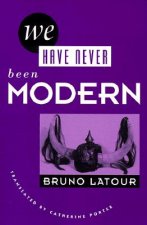
Kód: 03173176
What Man Has Made Of Man
Autor Mortimer J. Adler
What Man Has Made of Man. CONTENTS: INTRODUCTION ix AUTHORS PREFACE xvii LECTURE i. THE CONCEPTION OF SCIENCE IN THE MODERN WORLD 3 LECTURE 2. THE POSITION OF PSYCHOLOGY IN PHILOSOPHY AND AMONG THE NATURAL SCIENCES 31 LECTURE 3. T ... celý popis
- Jazyk:
 Angličtina
Angličtina - Vazba: Pevná
- Počet stran: 268
Nakladatelství: Read Books, 2008
- Více informací o knize

Mohlo by se vám také líbit
Darujte tuto knihu ještě dnes
- Objednejte knihu a zvolte Zaslat jako dárek.
- Obratem obdržíte darovací poukaz na knihu, který můžete ihned předat obdarovanému.
- Knihu zašleme na adresu obdarovaného, o nic se nestaráte.
Více informací o knize What Man Has Made Of Man
Nákupem získáte 118 bodů
 Anotace knihy
Anotace knihy
What Man Has Made of Man. CONTENTS: INTRODUCTION ix AUTHORS PREFACE xvii LECTURE i. THE CONCEPTION OF SCIENCE IN THE MODERN WORLD 3 LECTURE 2. THE POSITION OF PSYCHOLOGY IN PHILOSOPHY AND AMONG THE NATURAL SCIENCES 31 LECTURE 3. THE HISTORY OF PSYCHOLOGY 61 LECTURE 4. PSYCHOANALYSIS AS PSYCHOLOGY 94 SUPPLEMENTARY NOTES 124 EPILOGUE 235 LIST OF PRINCIPAL NOTES 245 vu INTRODUCTION BY DR. FRANZ ALEXANDER. IT is unusual to write an introduction to a book of an author whose conclusions, approach to his problems and whole outlook are diametrically opposite to those of the author of the introduction. Why did I then accept Mr. Adlers suggestion to write an intro duction to his book and why did Mr. Adler ask me to do so, are both questions which require an explanation. The circumstances under which these four lectures originated will elucidate this para dox. Engaged in psychoanalytic teaching and clinical studies for a long period of time, I gradually came to the conviction that in this field as in others where students are using a highly standardized technical procedure and are mainly absorbed in minute observa tion of facts, briefly in all preeminently empirical fields, the stu dents are apt to lose perspective towards their own work. This conviction goes back to those early days that I spent as a research worker in physiology in an experimental laboratory. There, I became first acquainted with the characteristic mentality of mod ern scientific research. There I learned the mores and virtues of modern research and first recognized the danger which con fronts the scientific worker of the present day. This danger is not restricted to scientific laboratories, it is a general problem of the present age. Man, the inventor of the machine, has become the slave of the machine, and the scientist, in developing highly refined methods of investigation, has become not the master but the slave of his laboratory equipment. An extreme amount of specializa tion of interest and mechanization of activity has taken place and a scotoma for essentials has developed a naive belief in the magic omnipotence of specific technical procedures leads to a routine, often sterile submersion in details without interest in or under standing of larger connections. It is no exaggeration to say that in many scientific centers not the interest in certain fundamental problems but the fortuitous possession of some new apparatus directs the research work a new laboratory technique is introduced which spreads like a f ad to all laboratories then everywhere problems are selected which can be approached by this new technique or apparatus. Scientific inter est in the fundamentals is lost, research is dictated more or less at random by the technical facilities at the workers disposal. This attitude necessarily must lead to that caricature of scientific ethics which regards suspiciously everything that entails reason ing and not merely observation and is contemptuous about theories, not to say hypotheses that are not as yet proven. There is a naive adoration of pure facts which are collected without any leading ideas. Psychoanalysis is a highly empirical field in which the student is exposed to an extreme variety of observations and in a certain sense unique facts, as every patient presents a unique combina tion of common elements. Today the psychoanalytic clinician is undergoing a healthy reaction against the present abundance of theory and generalizations. He is in the process of accepting the mentality of the natural scientist and is assuming all the virtues and weaknesses of our era of laboratory research. Like his other clini cal colleagues also he uses a highly standardized and refined tech nique but pays a high price for his technical skill he is gradu ally losing perspective and correct judgment regarding the validity and limitations of his technique and of his scientific work in general...
 Parametry knihy
Parametry knihy
Zařazení knihy Knihy v angličtině Humanities History
1179 Kč
- Plný název: What Man Has Made Of Man
- Autor: Mortimer J. Adler
- Jazyk:
 Angličtina
Angličtina - Vazba: Pevná
- Počet stran: 268
- EAN: 9781443731799
- ISBN: 9781443731799
- ID: 03173176
- Nakladatelství: Read Books
- Hmotnost: 490 g
- Rozměry: 216 × 140 × 19 mm
- Datum vydání: 04. November 2008
Oblíbené z jiného soudku
-

God's Playground
1132 Kč -

Iron Kingdom
542 Kč -

Sword and Scimitar
592 Kč -

When Women Ruled the World
557 Kč -

The Lessons of History
276 Kč -

Killers of the Flower Moon
268 Kč -

Landmark Julius Caesar
706 Kč -

Under the Black Flag
421 Kč -

God's Playground
1174 Kč -

Empires of the Silk Road
492 Kč -

Access to History for the IB Diploma: Authoritarian states Second Edition
926 Kč -

God's War
596 Kč -

Energy
599 Kč -

Armies of the Macedonian and Punic Wars
1272 Kč -

Archaeology of Weapons
361 Kč -

Grand Strategy of the Byzantine Empire
827 Kč -

Armies of Feudal Europe 1066-1300
1083 Kč -

Encyclopedia of Japanese Swords
2001 Kč -

Wake Up
276 Kč -

Lies My Teacher Told Me
386 Kč -

Conquering Tide - War in the Pacific Islands, 1942-1944
848 Kč -

Vienna 1683
560 Kč -

History of Leo the Deacon - Byzantine Military Expansion in the Tenth Century
719 Kč -

Civilian Warriors
380 Kč -

We Have Never Been Modern
887 Kč -

Lives of the Cambro British saints, of the fifth and immediate succeeding centuries, from ancient Welsh & Latin mss. in the British Museum and elsewhe
740 Kč -

AN ESSAY ON CRITICISM. WITH NOTES BY MR.
527 Kč -

Shapeshifters
490 Kč -

Europe Knows Nothing about the Orient - A Critical Discourse (1872-1932)
585 Kč -

Gaza Unsilenced
523 Kč -

Etiquette for Every Day
1125 Kč -

SECRET MEMOIRS OF THE COURT OF LOUIS XIV
1124 Kč -

Care of Books - An Essay on the Development of Libraries and Their Fittings, from the Earliest Times to the End of the Eighteenth Century. Fully Illus
810 Kč -

Killing of Major Denis Mahon
414 Kč -

Compendiun on the Soul
473 Kč -

Memoirs of the House of Orleans
1096 Kč -

Gaza
852 Kč -

Witch
415 Kč -

Battle Cry of Freedom
570 Kč -

Army of None
394 Kč -

When Women Ruled the World: Six Queens of Egypt
365 Kč -

National Geographic The Old West
956 Kč -

Pax Romana
410 Kč -

Lays of Ancient Rome
278 Kč -

Kingdom in the Sun, 1130-1194
356 Kč -

Falsification of History: Our Distorted Reality
826 Kč -

Encyclopedia of Japanese Swords (Paperback)
1302 Kč -

Normans in the South, 1016-1130
356 Kč -

Tudor Fashion
882 Kč
Osobní odběr Praha, Brno a 12903 dalších
Copyright ©2008-24 nejlevnejsi-knihy.cz Všechna práva vyhrazenaSoukromíCookies








 Vrácení do měsíce
Vrácení do měsíce 571 999 099 (8-15.30h)
571 999 099 (8-15.30h)